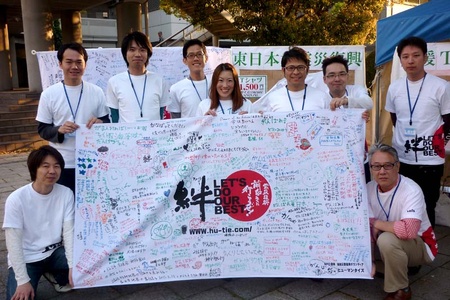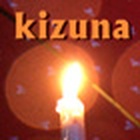“Human Ties” is a Sendai-based organization originally established as an NPO in the aftermath of the March 11, 2011 earthquake and tsunami that devastated the Pacific coastal region of Tohoku. It is now a registered charitable foundation.
While it cooperates with other volunteer groups and local government bodies it has no religious or political affiliations. Its co-founders are Ms. Maya Sasaki and director Tatsuhiro Nobushi. Together they decided shortly after the ‘triple disasters’ (earthquake, tsunami, nuclear) that they wanted to cut through the government red tape and in some way do something to aid in the relief and recovery, particularly in the more remote farming and fishing communities in Tohoku which were largely being ignored given the sheer scale of these disasters.
As both are involved in chiropractic and sports rehabilitation massage therapy, their initial focus was to dispatch volunteers to evacuation centers to give massages to those sleeping there, the majority of which were senior citizens. They also started selling t-shirts and other items designed for free and produced at cost to support the recovery effort.
From that time on and as a result of these activities Human Ties established a reputation of trust within these local communities and also created a Japan-wide volunteer base. Over the past year it has been called upon to organize volunteers for and participate in a large range of projects which have included everything from providing free meals to those in evacuation shelters and temporary housing, reconstructing greenhouses, planting strawberries, removing sand from cemeteries inundated by the tsunami, hosting foreign press and artists wanting to raise awareness of the ongoing problems and most recently over the past 6 months with the support of countless volunteers washing by hand over 300,000 photographs recovered from the tsunami zone.
No one within Human Ties receives a salary, says Australian volunteer James Davies, translator and the organization’s English contact/liaison person based in Sendai. “Personally, as a passionate volunteer for this organization I believe their core philosophy is ‘if it needs to done to help the people in Tohoku we will do it.’
James remembers what happened at 2:46 pm on March 11.
I was at home in my office when the quake struck. The phone alarm went off first time ever so thought it was a flat battery or something. Then everything started shaking and it got worse and worse. I was holding on to my TV but we both went down together. They say it lasted about 5 minutes but seemed much shorter to me.
After that we lost all power phones etc so until the next day had no idea about the tsunami that struck the coast. Tokyo was getting news but we were basically cut off. You have to remember that only 60 of the roughly 20,000 deaths were due to the quake itself.
Then in the aftermath was when I started to recognize the community strength. Everyone was helping each other. No looting or anything. Orderly queues outside any shop that had food, etc.
An Australian friend of mine worked really near the coast and he only got out about 2 minutes before the wave hit. His coworker who went back to pick up a friend was never seen again. He decided to turn left and use a back road rather than the major road which was jammed with traffic. Basically everyone on that road perished. He still has nightmares and flashbacks.
For me looking back over the last year I recognize that both I and all of the Tohoku community have changed. (As typing now yet another earthquake 3 on the J scale. Second 3 plus this week. No worries with me but it wears everyone down a bit.) In the places I have visited I have nothing other than enormous respect for the fortitude of the people I have met. I now never worry about job, income, or any personal issues I may have; if they can be that strong my own problems pale into insignificance.
As to what I have seen you can pretty much block all that out, the only thing that really hits me and I can’t forget is the smell in those areas shortly afterwards. When washing photos it is still in every album you open and every photo you clean.
Little things have also changed, he points out. “Pretty much everyone I know now sleeps in something they can leave the house in. While this was a tragedy to have had the opportunity to meet so many wonderful people both victims and volunteers has been truly a blessing. Memories such as being able to make a little girl smile at an evacuation center or being able to chat with an elderly person I will cherish forever.
“Honestly the volunteers get more out of helping than those they are able to help.
Human Ties philosophy in everything they do is to put smiles on faces.”
James emphasizes that the recovery effort is still years away from being completed. Please check out their website at http://hu-tie.com and “keep in mind all of those still struggling to deal with these disasters.”
© 2012 Norm Ibuki







